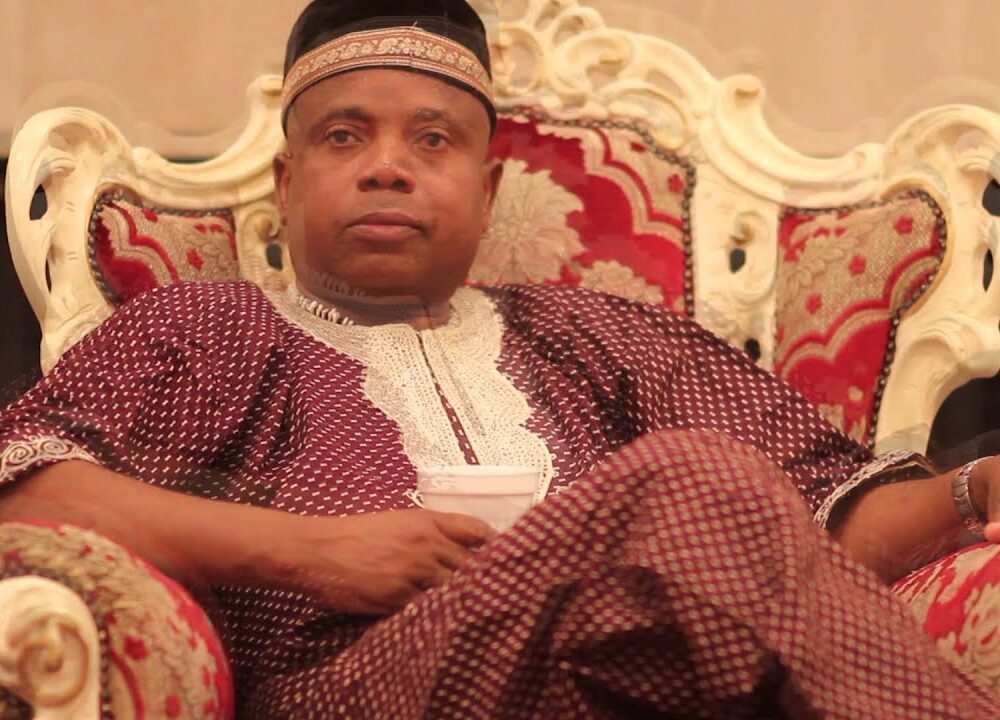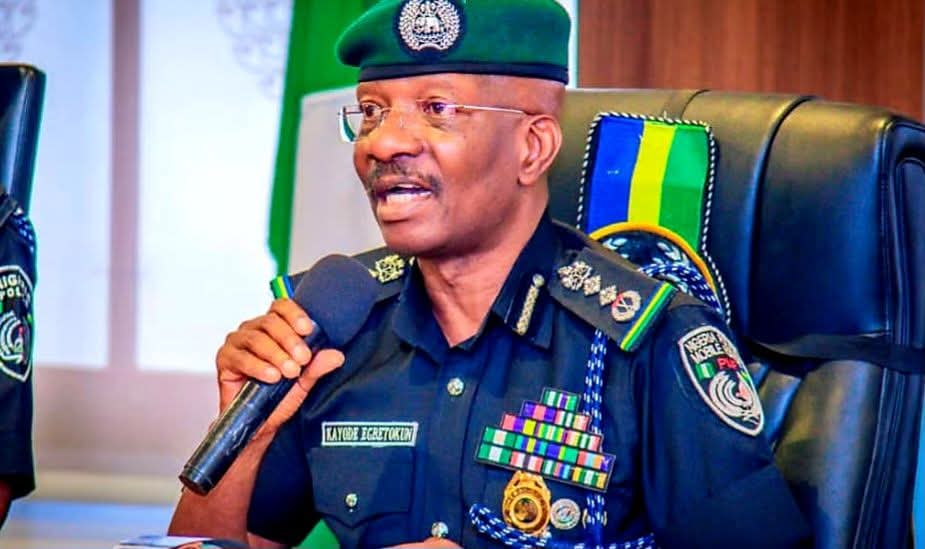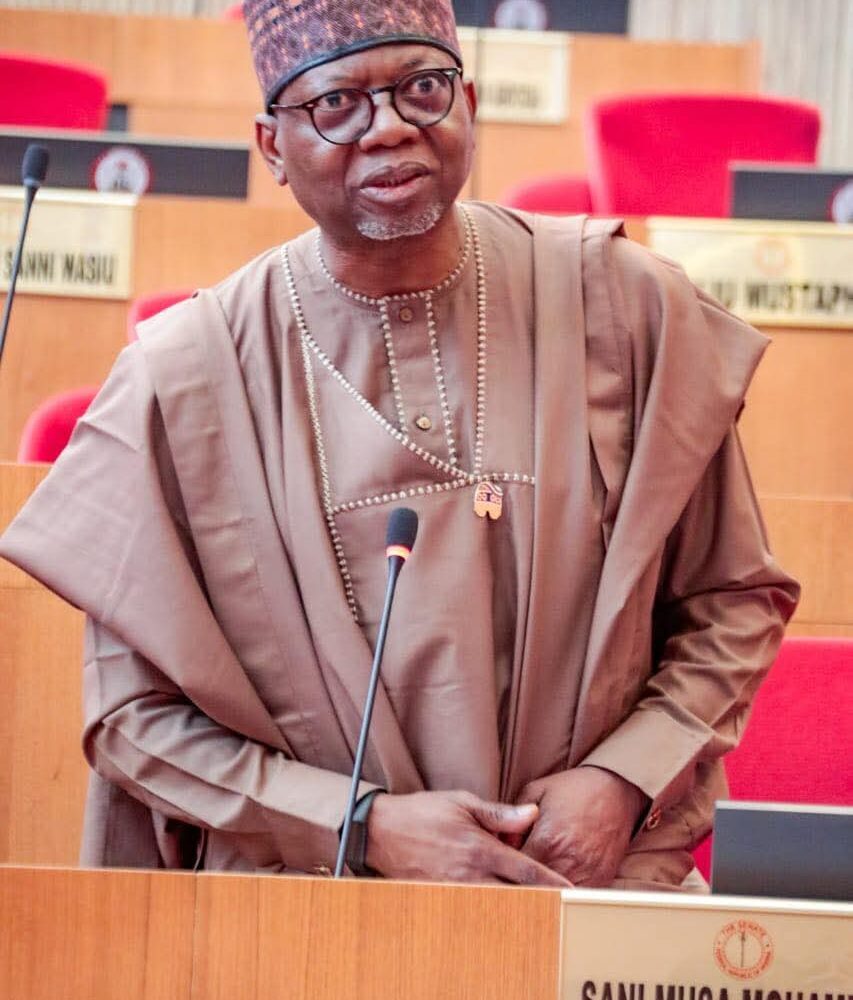The dust raised by the gruesome murder of 17 Soldiers in Okuama Community in Delta State is yet to settle as the Federal Government has vowed to get to the root of the crisis with the assurance that the perpetrators of the heinous crime would be brought to justice. On March 14, troops allegedly responding to a communal crisis between Okuama and Okoloba communities were attacked by yet to be identified gunmen who murdered the soldiers following an ambush. They did not stop there but went ahead to dismember the bodies of many of those that they killed. Among the victims was the commanding officer of 181 Amphibious Battalion, Bomadi, Lieutenant Colonel AH Ali, two army majors, an Army Captain and 12 other rank and file.
How the Officers and Soldiers were ambushed and murdered like chickens is still a mystery to me. Were they unarmed?
If actually they were on a peace mission, why would they be attacked without any provocation? There are so many conjectures on the actual cause of the crisis but the fact is that 17 Nigerian soldiers tragically lost their lives.
Twenty-four hours after the incident, the entire Okuama community became a ghost town. Many of the residents simply had a dialogue with their legs. They did not wait to see what would become of their community. With what happened in Odi, a predominantly Ijaw community in Bayelsa State still fresh in their memory, many of the residents simply disappeared into thin air.
The Odi massacre happened over 20 years ago, but the people of Okuama seem not to have learnt any lessons. If they had, they would have prevented the gruesome murder of soldiers within their community. On November 20, 1999, men of the Nigerian Army invaded Odi town and razed it to the ground. When the guns stopped booming, over 500 civilians were killed. What prompted the massacre? Twelve members of the Nigeria Police were murdered by a gang of armed men in the town.
In retaliation, the military invaded the village after President Olusegun Obasanjo gave them the go ahead. Although the Army was also ambushed and their expedition resisted on the outskirts of the village, they shot their way out of the ambush and exchanged fire with the armed militia. Anything that moved was gunned down and the entire Odi village was set on fire. When the dust settled, only banks, an Anglican church and a health centre were the only structures standing.
If the people of Okuama had forgotten about Odi, what about the military expedition in Zaki Biam? On October, 2001, 19 soldiers were ambushed and captured in the town of Vaase in Benue State by a group suspected to be Tiv militias. Two days later, the bodies of the soldiers were discovered near a primary school in the nearby town of Zaki Biam.
According to locals, the murders were prompted by previous incidents in which armed men in military uniforms attacked several Tiv communities. There was a strong suspicion among the Tiv that elements of the military were backing their Jukun rivals, with whom they have had a recurring conflict over land, indigenship, economic and political power.
But between October 20 and 24, many unarmed Tiv civilians were killed by the Nigerian Army to avenge the killing of their men.
This time, the Army denied being responsible for the murder of civilians and President Obasanjo simply looked the other way. However, on November 6th, 2007, the newly appointed Chief of Army Staff, Lt. General Luka Yusuf publicly offered an apology to the people of Benue for the killings. Also, then newly sworn in President Umaru Yar’Adua visited Benue State to personally apologise on behalf of the Federal Government of Nigeria for the killings. No soldier was ever punished, and nobody went to jail for the offences committed.
Now, Okuama is in the news for the wrong reasons and the town has become a ghost of itself. Some houses in the community believed to belong to some of the militant youths have been burnt down while the entire area is on lock-down as the military is not allowing anybody access to the town. In all of these, President Bola Tinubu has given the military the needed moral support as he has vowed to punish those who killed Nigerian Soldiers. He also gave a marching order to the military high command to fish out the killers.
Those in authority need to get to the root of the crisis. If they dig deeper, they would discover that the crisis has to do with crude oil and the ‘evil’ that comes with it. The two warring factions, Okuama and Okoloba, have been at each other’s throats over land matters for a very long time. However, the entire Okuama and Okoloba communities are rich and veritable source of crude oil. But while Okuama is an Urhobo town, Okoloba is predominantly an Ijaw community. In the Niger Delta region, there has been tension on several fronts since the federal government gave pipeline protection contract worth N48 billion to High Chief Government Ekpemupolo.
Ekpemupolo, popularly known as Tompolo, is a retired militant and a former leader of the Movement for the Emancipation of Niger Delta (MEND). It was when the Yar’Adua government gave amnesty to militant leaders in the Niger Delta that Tompolo dropped his guns and later established a company, Tantital Security Service Limited, through which he got the pipeline protection contract. Tompolo is an Ijaw man but other sub-ethnic groups in the Niger Delta felt that they are no longer getting commensurate reward from their God-given oil. While some are fully into oil bunkering activities in the region, Tompolo and his company are on the look out for them, hence the no-love-lost between the Ijaws and other sub-ethnic groups in the Delta.
Other powerful militia leaders are also into crude oil theft and again, Tompolo and his company are also dealing with them on that front. Despite the controversy that trailed the contract between NNPC Limited and Tompolo, his company has reportedly discovered several illegal connections into major crude oil pipelines. In the Delta and Bayelsa axis alone, 58 illegal connections were discovered. The massive oil theft in the creeks had reduced daily crude oil production to below one million barrels per day in the last few months but recently, NNPCL claimed that daily production has increased to 1.6 million barrels per day, from 937,000 barrels per day that it recorded in September last year.
The NNPCL, in a documentary released early this year, disclosed that it recorded 112 cases of crude oil theft between December 23, 2023 and December 29, 2023 alone. “In the past week, 42 illegal refineries were discovered in Konsho and Tebidaba in Bayelsa state; Obokofia in Imo state; Ogidigben, Mereje and Obodo Omadina, in Delta state. Illegal refineries in Umuire, Abi state, and Upata in Rivers state, were also discovered and destroyed. The company also disclosed that 14 illegal connections were uncovered in several parts of the Niger Delta, and that In Owaza, Abia state, a tunnel covering an illegal connection was also uncovered while 10 cases of vandalism were discovered. “Illegal storage sites were discovered in Ebocha and Ton Kiri in Rivers state where oil pits were found, and in Ogbia, Bayelsa state, sacks of crude oil were discovered. More illegal storage sites were also uncovered in Urhonigbe, in Edo state; Ekuku-Agbor and Bomadi in Delta state.”
It is clear from the above that most communities in the Niger Delta are fully engaged in activities that are detrimental to the overall survival of the country and the government needs to take a closer look at the problem.
Many of the warlords in the Niger Delta believe that Tompolo is hindering them from making money from illegal crude oil sales. Those that are into illegal crude oil refinery are also feeling the heat, hence, the tension within the entire Niger Delta region.
The real genesis of the Okuama/Okoloba crisis started few weeks back, when an Okoloba boy was allegedly ambushed and killed by militants in Okuama. But the feeling in Okuama was that it was Tompolo that engineered the involvement of the military in a bid to take undue advantage after the boy was killed.
A body known as Urhobo Media Practitioners Advocacy Group (UMPAG) is already calling for a full-scale investigation into the murder of the Soldiers. The group, in a statement, also alleged that the military are also complicit in the crisis between the two communities. “From information available to us, we demand that the panel probe the following areas: What was the true mission of the soldiers to Okuama and Okoloba communities? Was the Ovie (King) of Ewu Kingdom and her subjects informed of the military visit on a peace mission? Was the Governor of Delta State, Rt. Hon. Sheriff Oborevwori, informed of the peace mission? Why did the situation report come from DPO Bomadi, and not DPO Otu-Jeremi? Why would the military, stationed in Bomadi, embark on a “peace mission” to Okuama in Ughelli South, without the involvement of DPO Jeremi, and local government officials? Why was the military’s “peace mission” escorted by Ijaw youths?
Questions, and more questions. As pointed out earlier, the entire economy of the Niger Delta is based on crude oil. The land has been made unattractive for farming and fishing due to oil spills, majority of the young boys in the region are not interested in education as they believe that they stand a better chance of hitting it big either as a militant or by getting involved in ‘cooking’ oil – illegal refinery business.
The military that should provide security for the nation’s economic arteries through the sale of crude oil are also in the Niger Delta to make money for themselves. They allow ships and vessels with illegal crude oil easy passage after settling the big boss, and Nigeria has had to source the protection of its crude oil pipeline to a private company. Sad!
The Federal Government should design a template through which the crisis facing the entire Niger Delta region could be addressed. The youth, particularly young boys, must return to school and discard their unbridled ambition to hit it big by engaging in illegal business. Oil spill in the region should be addressed so that those interested in farming and fishing would have a sure means to a livelihood, while the military and other security agencies should up their games and be ready to protect our crude oil facilities across the country.
Until a holistic solution is designed and implemented, the Okuama tragedy would be a child of more deadly encounters in the future.
See you next week.





